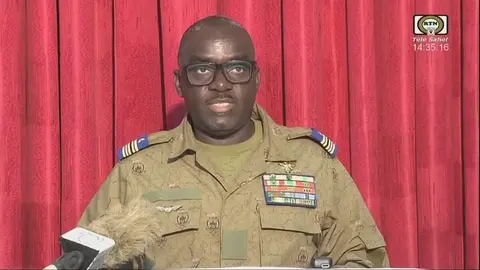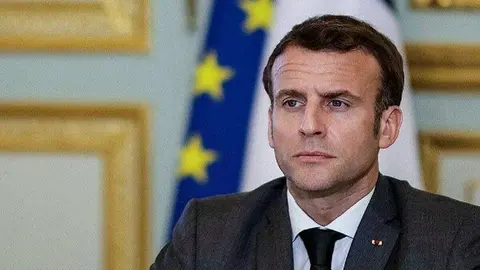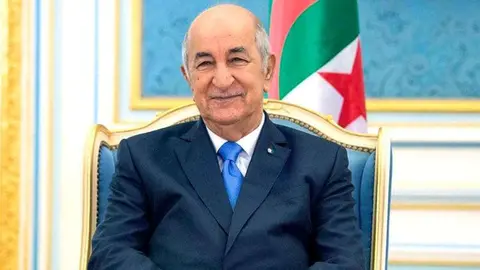Niger's coup leaders authorise negotiations with ECOWAS

Mahamane Lamine Zeine, Prime Minister of Niger appointed by the military junta in power following the coup d'état against the legitimate government of Mohammed Bazoum, announced that the leader of the self-styled National Council for the Safeguarding of the Homeland (CNSP), Abdourahamane Tchiani, has authorised the start of talks with the Economic Community of West African States (ECOWAS).
The Nigerian Prime Minister sent a clear message: "We are optimistic that talks with ECOWAS will begin in the coming days". This is despite the fact that ECOWAS announced tough sanctions that were criticised by the ruling military junta itself, which described the sanctions measures as "inhumane, illegal and degrading". In a statement read out on national television, Colonel Major Amadou Abdramane, spokesman for the CNSP, said the people of Niger are "deeply affected by the illegal, inhuman and degrading sanctions imposed by ECOWAS which amount to depriving the country of even medicine, food and electricity".

The national situation is difficult as Niger suffers from extreme poverty and political instability that is once again shaking an already troubled area such as the Sahel, where various criminal and terrorist organisations exert their influence, creating serious security problems. Several Western countries, from the United States to France (a former colonial power present in Niger) condemned the coup d'état against the legitimate Nigerien government, and other regimes in countries in the Sahel region such as Mali and Burkina Faso, which also suffered coups d'état and have close political and economic ties to Russia, expressed their strong support for the new government in Niger.
This announcement of intention to negotiate comes shortly after the military junta announced charges against the legitimate, democratically elected president Mohammed Bazoum and his collaborators on charges of high treason and threatening state security.

The official communiqué also stated that the military junta condemns "the misleading campaign aimed at frustrating all negotiation efforts to justify military intervention" against Niger. A military intervention was ruled out by the West.
On 30 July, four days after the coup, ECOWAS leaders decided to impose financial sanctions on Niger and gave the coup leaders seven days to restore constitutional order in the country, on pain of military intervention to return Bazoum to power. This was followed on 10 August by another ECOWAS summit where leaders of the Economic Community of West African States agreed to the "immediate activation" of their standby forces in order to restore constitutional order in Niger following the coup d'état.

The African supranational body took this decision at an extraordinary summit in Abuja after the previous ultimatum expired. ECOWAS, in addition to imposing sanctions against Niamey, threatened to use force if power was not returned to Bazoum, a request ignored by the new military junta, which has even announced a new executive headed by economist Mahamane Lamine Zeine.











